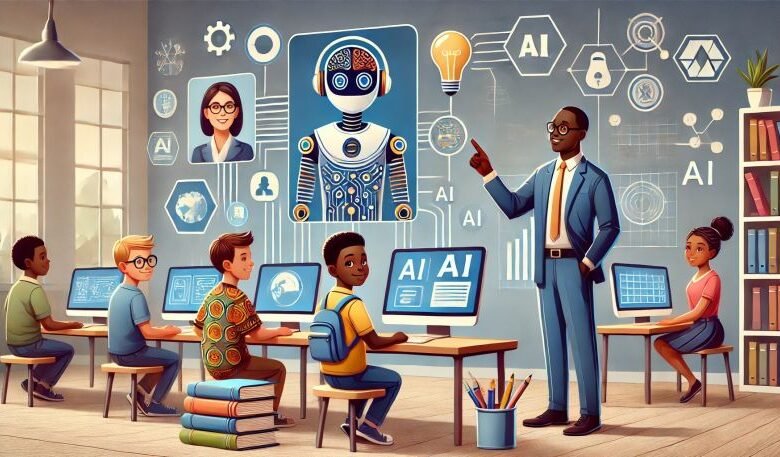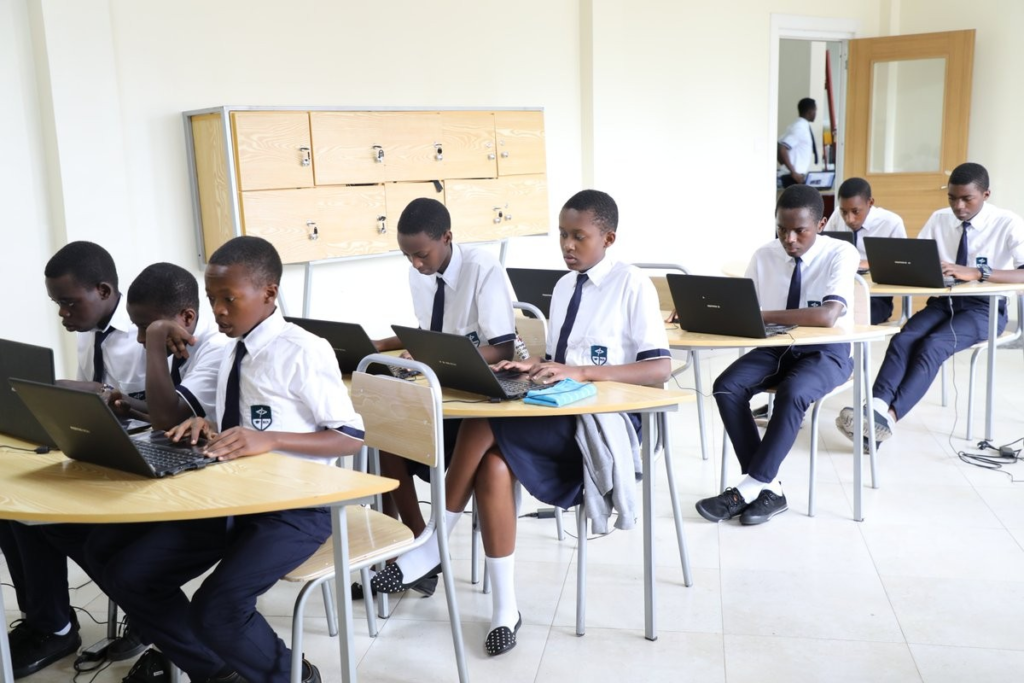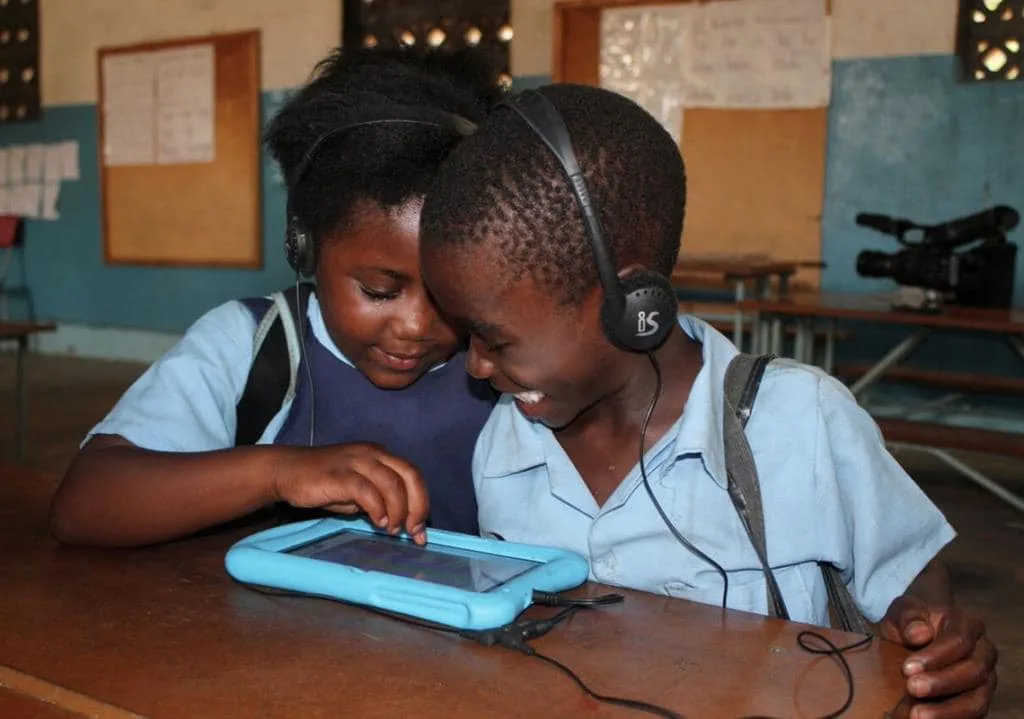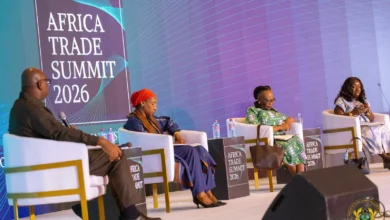Education and training : preparing Africa for tomorrow’s challenges
Africa, like the rest of the world, is entering the era of the Fourth Industrial Revolution, dominated by artificial intelligence. To seize the opportunities it brings, it is essential to prepare young people to master these new technologies. However, current efforts struggle to keep pace, despite the emergence of initiatives led by both African and international public and private actors to train young people in the skills needed for the economies of the future. Analysis.

By the editorial team
African economies, historically centered around agriculture and extractive industries, are now diversifying into sectors such as information technology and e-commerce. This transformation requires skills that traditional training systems are still struggling to provide in both quantity and quality. The rise of fintech, for example, demands experts in programming and cybersecurity.
This evolution exacerbates a problem already widespread in Africa: the mismatch between the skills acquired by graduates and the needs of the labor market. According to the World Bank, 70% of employers consider that young people lack adequate skills. This disconnect leads to high unemployment rates among young people, while paradoxically, some sectors are suffering from a shortage of qualified labor.
Access to quality training remains a major challenge, especially in rural areas, where educational infrastructures are often deficient and curricula outdated. This shortage is worsened by a lack of qualified trainers and limited access to modern technologies.
Digital technologies are transforming the educational landscape

« As traditional educational systems struggle to keep pace with rapid technological changes, we are witnessing the emergence of alternative learning platforms that offer solutions to bridge the skills gap in Africa. These initiatives can accelerate the process of preparing our young people for the Fourth Industrial Revolution, » says Rebecca Enonchong, tech entrepreneur and founder of AppsTech.
Indeed, innovative initiatives are beginning to multiply to improve training in Africa. Public-private partnerships play a crucial role. Companies like Andela and Moringa School offer intensive coding programs specifically designed to meet the needs of businesses. In the same vein, the Youth Skills Network promotes training focused on digital and entrepreneurial skills.
Digital technologies are also radically transforming the educational landscape. Platforms like Coursera and edX make training accessible, even in remote areas. Local initiatives, such as the Digital Innovation Academy in Rwanda, integrate these technologies to offer practical training, accompanied by internships, to facilitate the professional integration of young people.
If Africa wants to fully exploit the potential of new technologies…
« If Africa wants to fully exploit the potential of these new technologies, we must invest in the training of our young people by providing them with the skills of tomorrow, » emphasizes Akinwumi Adesina, president of the African Development Bank.
To thrive, training programs must adapt to the rapid changes in the labor market. The integration of transversal skills, such as critical thinking, collaboration, and adaptability, is becoming essential. Close collaboration between governments, educational institutions, and the private sector is crucial to ensuring the relevance of the training offered.
The future of education in Africa relies on collaboration

« The future of education in Africa depends on collaboration between governments, the private sector, and educational institutions to ensure that students acquire skills relevant to the current labor market. Without this synergy, we risk further disconnecting our young people from emerging employment opportunities, » warns Fred Swaniker, founder of the African Leadership Academy.
The future of education in Africa, and more broadly the development of Africa, will depend on the ability of educational systems to adapt to market needs and provide young people with the essential tools to succeed in a constantly evolving world. According to the Mastercard Foundation’s Young Africa Works strategy, by 2030, Africa’s workforce will reach one billion people, with 375 million young people entering the job market. This will require a shift in educational strategies, and artificial intelligence has the potential to equip young Africans with the new skill sets needed in the job market.






